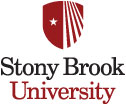Newswise — STONY BROOK, NY - May 23, 2018 - Negative attitudes toward frozen vegetables may be impacting consumption of healthy foods, according to research by Stony Brook marketing professors published in Appetite.
Consuming enough fruits and vegetables is important for maintaining a healthy diet and reducing risk factors for obesity and obesity-related illnesses. However, it’s estimated that 87% of the population in the United States doesn’t eat enough vegetables. Identifying barriers to vegetable consumption is important because lower income heads of households report they avoid buying fresh vegetables because they are afraid they will expire before they are consumed.
Frozen foods offer parents and caregivers flexibility to give smaller portions of vegetables to their family while decreasing the likelihood of waste and the money spent on food that might expire. Yet, despite the fact that frozen vegetables offer similar if not superior nutrition benefits to fresh food, the purchase of frozen vegetables in grocery stores is declining.
Stony Brook University’s Paul Connell and Stacey Finkelstein, both associate professors of marketing at Stony Brook University, collaborated with Florida State’s Maura Scott and Villanova’s Beth Vallen on a study “Negative Associations of Frozen Compared with Fresh Vegetables” and it documents reasons for the negative associations, namely that people have persistent negative attitudes towards frozen vegetables compared to fresh vegetables (a “fresh-frozen bias”).
“In two studies we find that people have a strong negative bias against frozen vegetables when compared to fresh vegetables and that the perceived positive benefits of fresh vegetables decrease when people think about preparing fresh vegetables,” the researchers said. “We recommend a few strategies for attenuating this fresh-frozen bias including increased exposure to food preparation and nutrition education programs that prevent or correct mistaken beliefs about frozen foods.”
###
About Stony Brook University
Stony Brook University is going beyond the expectations of what today’s public universities can accomplish. Since its founding in 1957, this young university has grown to become a flagship as one of only four University Center campuses in the StateUniversity of New York (SUNY) system with more than 26,000 students and 2,600 faculty members, and 18 NCAA Division I athletic programs. Our faculty have earned numerous prestigious awards, including the Nobel Prize, Pulitzer Prize, Indianapolis Prize for animal conservation, Abel Prize and the inaugural Breakthrough Prize in Mathematics. The University offers students an elite education with an outstanding return on investment: U.S. News & World Report ranks Stony Brook among the top 50 publicuniversities in the nation. Its membership in the Association of American Universities (AAU) places Stony Brook among the top 62 research institutions in North America. As part of the management team of Brookhaven National Laboratory, the University joins a prestigious group of universities that have a role in running federal R&D labs. Stony Brook University is a driving force in the region’s economy, generating nearly 60,000 jobs and an annual economic impact of more than $4.6 billion. Our state, country and world demand ambitious ideas, imaginative solutions and exceptional leadership to forge a better future for all. The students, alumni, researchers and faculty of Stony Brook University are prepared to meet this challenge.
